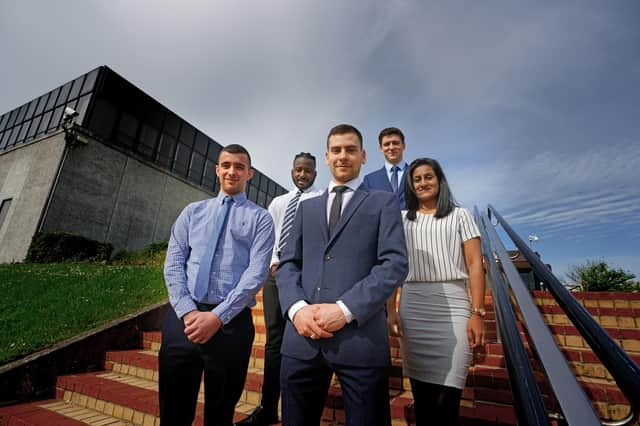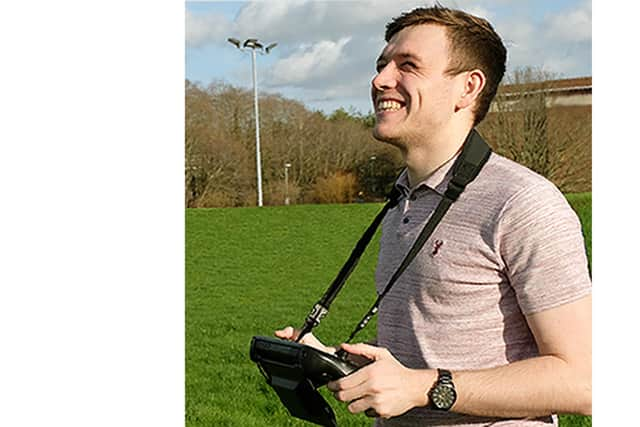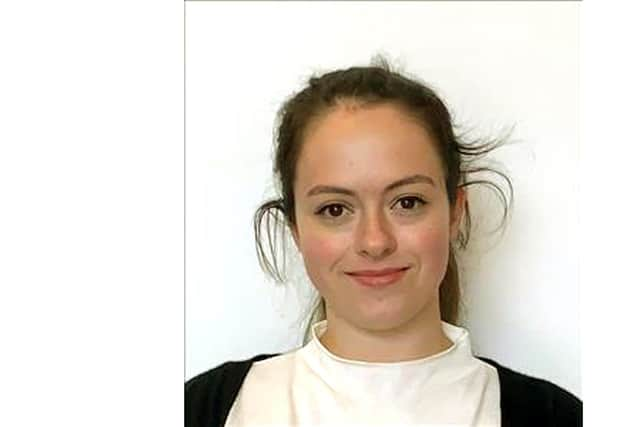Find out what life is like for an apprentice at Lockheed Martin UK


An apprentice at Lockheed Martin UK will get hands-on experience at an innovative company that is driven by a sense of purpose and a passion for innovation to shape the future and solve some of the world’s most pressing problems.
Working as part of a dynamic team, the focus is on providing smart solutions whilst creatively solving problems for our customers.
Lockheed Martin has signed up to the 5% Club Charter, which means we have committed to 5% of our UK workforce over the next five years being young people on structured training schemes.


Here two Lockheed Martin UK apprentices, Olivia Petris and Ryan Hinks, talk about their experiences.
What does a typical day of an apprentice look like at Lockheed Martin?
Olivia: I start working remotely around 8am. My first job is to check my emails and respond to any outstanding ones from the day before, then I attend some morning meetings with my team.
The rest of the day I work on the challenges we’ve set as a team – anything from designing software to coding it - and fill in any spare time by doing university work. I attend university every five weeks on block release.


Ryan: I will take a daily stand-up with my team to discuss what everyone has achieved and plans to achieve over the coming days, keeping everyone in sync.
I will then work on the assigned tasks, which can vary depending what has been allocated for that two-week period.
I am now implementing algorithms in Python and in C++ for speed optimisation.
How did you decide on an apprenticeship? How was the scheme advertised and what made you pick Lockheed Martin?
Olivia: I found the apprenticeship through the UCAS apprenticeship site. What initially attracted me to it were two things: firstly, the fact my degree would be sponsored, and secondly, that I could start getting some real, practical experience immediately.
I found out more about Lockheed Martin (its goals, ethics and international projects) and decided it would be good to start my career in a company with so many opportunities.
Ryan: I decided on an apprenticeship as I believed working and learning simultaneously would be best suited to me, as I would gain experience and qualifications to improve my career development.
University was an option, although I have achieved the same qualifications as if I had gone to university and have more than four years’ experience and no debt.
How do you plan to shape your career with the skills and knowledge you’re learning now?
Olivia: At both work and university, I’m developing my coding skills, which will be useful in any career path I choose to take. Coding is one of the best ways to innovate and shape the future because, like the whole computer science sector, it’s always evolving and adapting. I’m also learning other technological skills that I can use in the future.
Ryan: I have learned a variety of skills that all contribute to a solid foundation as a software engineer.This is the perfect start to my career as I already have a wide range of experience with testing, software development and now embedded development.
My plan is to gather more experience and expertise as a software engineer.
Why should people consider an apprenticeship? What advice would you give?
Olivia: Consider an apprenticeship if you want to earn a salary whilst you learn, or if you learn best doing practical work.
My main advice would be to be prepared for a steep learning curve and to face challenges positively.
Ryan: The benefits of apprenticeships are significant when compared to another option like going to university. An apprenticeship for me meant gaining the same qualification (BSc degree), plus the benefit of not having to pay for university, paid weekly day release to learn and earn a full-time job salary, while acquiring invaluable experience on the job.
What are your next steps for your career and education at Lockheed Martin?
Olivia: After I finish the apprenticeship scheme, I’m looking at entering a graduate role somewhere within the company.
Ryan: My plan will be to focus on work and become a proficient software engineer in my field, and potentially explore an MSc in the future.
For more information, go to https://www.lockheedmartin.com/en-gb/careers/early-careers.html#apprenticeship.